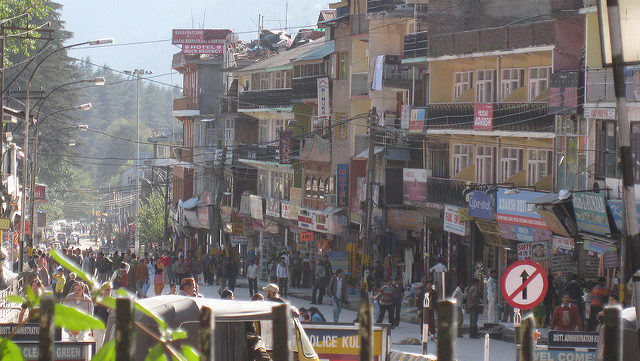Many development initiatives have limited impact. Educational curricula are developed, but children do not learn. Nurses are trained, but clinics lack staff. Governments adopt reforms, but institutional practices remain the same and citizens experience little change.
Genuine development progress is complicated: solutions are not simple or obvious, those who would benefit most lack power, those who can make a difference are often disengaged and political barriers are too often overlooked. Development initiatives often fail to address or adapt to these complex realities, promoting interventions that will have little impact.
Against this backdrop, Sida arranged a one-day-seminar called “Doing development differently – why aid has to change and how” on the 5th of October 2016. The seminar which was part of the series “Development talks”, featured an introduction speech by Anna Hammargren, Ministry of Foreign Affairs and presentations by Ben Ramalingam, Institute of Development Studies IDS, Leni Wild, Overseas Development Institute ODI, and Jonathan Beloe, International Rescues Committee IRC. The presentations were concluded with a panel discussion consisting of the above, Emma Proud, Mercy Corps, Nicole Goldstein, Department for International Development DFID, Samir K. Doshi, USAID, and Per Nordlund, Sida. During the afternoon session of the seminar, participants were able to join one of four workshops.
As the first speaker, Ben Ramalingam introduced the challenging context of development cooperation in the 21st century with the example of the recent Ebola crisis. “The Ebola outbreak wasn’t an environmental crisis, it wasn’t a health crisis, it wasn’t a political crisis, it wasn’t an economic crisis, it wasn’t a food security crisis, it was all of these crises at once. It slipped through the cracks. We didn’t start to adapt until it was too late. We didn’t see the interconnectedness of the problem. We failed to anticipate and act, and it ended up with the poorest paying the highest price.” Ben concluded that aid often fails to address four key areas: complexity in systems; irrational behaviour of people; the common focus on donor interests; and unexpected non-linear changes. He pointed out that there is a so-called ”adaptation gap” – the gulf between the growing need for adaptation management and the level of capabilities and commitment that we hold to meet this need.
Leni Wild continued at this point and outlined a vision for how development organisations can work with an adaptive approach. This would imply working not with a premade plan, but with continuous planning. Furthermore, the focus has to shift from donors to end-users: aid should target problems that end-users are facing.
In conclusion, a 21st-century development organisation would have to anticipate and interpret uncertainty and change by acting on end-user feedback. Dynamic teams would need to be empowered, and a high emphasis is put on networks and partnerships. As an example of this, Jonathan presented a case study from Myanmar which used an adapted and adaptive approach, instead of linearity and standardisation.
The panel discussion took a practical perspective on how to change development organisations, talking from their experiences. A point that was made by several panelists that concerned learning. The consensus was that development projects have to allow for a learning process, which then would contribute to an internal change within organisations. A key aspect of this learning process is to allow for new and novel partnerships among development actors, and even among actors that are not involved in development work. Actors would bring their skills and knowledge to the table, contributing to the untangling of complexity that prevails in the development sector today.
If you want to read more about case studies using an adaptive management approach, check the brief by IRC or this ODI report on an adaptive World Bank project in Nigeria.
If you’re interested in hearing more about doing development differently, have a look at the DDD manifesto or this ODI report on theories of change.
